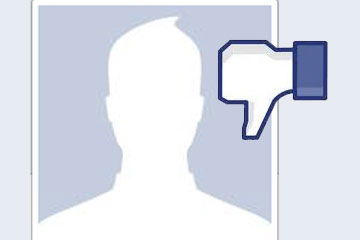20 years ago, your parents knew there were two things you did not discuss with dinner guests. Your grandparents knew it, your great-grandparents knew it. 2,000 years ago people knew it.
In 2014, we are so much smarter we no longer know it.
Maybe some surveys will help. And so to help us out, two papers address the most pressing topic in popular culture - how people feel about being un-friended on Facebook. Ironically, they found this out by surveying people on Twitter.
Who is the person most likely to be un-friended on Facebook? Survey says: A high school acquaintance. Why? Probably because they talked about religion or politics and their opinion was different and therefore too intolerant to be allowed. Plus, you only friended them because you knew them in high school and you didn't want to seem elitist by turning them down.

Credit: University of Colorado Denver
Oh, and sometimes because people throw up a bunch of stuff that is useless. But it's mostly politics and religion that got them booted, according to the survey results.
Rounding out the top 5 people you no longer want to deal with on the Internet are people you have to deal with at work - but that is usually because of something they did at work rather than nonsense they post on your Facebook page.
You have been un-friended. How does that make you feel?
If you are going to survey 1,077 people on Twitter about Facebook, you don't want to write just one paper with the results. So Christopher Sibona, a doctoral student in the Computer Science and Information Systems program at the University of Colorado Denver Business School, wrote two.
People had reactions about being un-friended. What were the most common emotions?
The survey says...
- I was surprised
- It bothered me
- I was amused
- I felt sad
There you go. The science is settled.
However, there was a metric that predicted the emotional response to being unfriended. A close friendship unfriending led to more negative feelings while if the issue was discussed before the unfriending the impact was less.
"If you have a lot of friends on Facebook, the cost of maintaining those friendships is pretty low," Sibona told David Kelly at the University of Colorado Denver. "So if you make a conscious effort to push a button to get rid of someone, that can hurt."
Published in the 2014 47th Hawaii International Conference on System Sciences.
Yes, Information Systems people have their conferences in Hawaii in January. Who's laughing now??




Comments